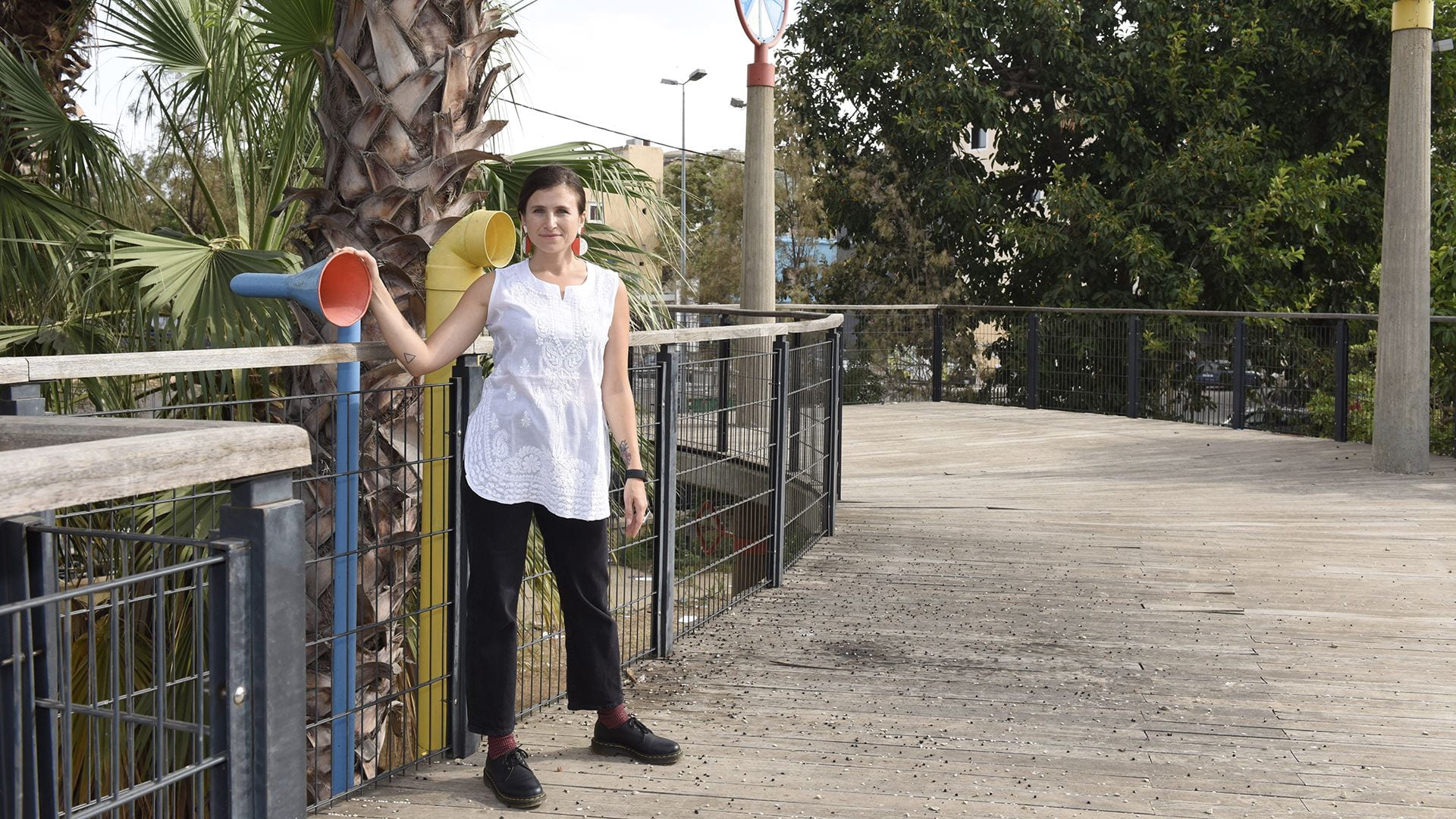
AUB Connects
Joana Dabaj: Making small changes, having a big impact
by MainGate Staff
Fall 2020/Winter 2021
In 2014, you co-founded a design studio called CatalyticAction. What prompted you to do this instead of, for example, getting a job with an existing design studio?
I have always been much more interested in speaking to people and understanding their needs. I wanted to work on the projects that were important to me, and to work in the way that I believe matters. CatalyticAction started in 2015 with a small playground project in Lebanon, an idea a couple of us had when completing our master’s degrees at University College London. We wanted to prove how architecture could be a tool to empower vulnerable communities and impact current humanitarian practice.
What is it about CatalyticAction that is different from other design studios?
We are a nonprofit that works to empower communities through strategic and innovative community-led interventions. We adopt a participatory approach to design, where the users are at the center
of the process. We focus on the co-design process as much as on the quality of the final product. We follow specific values in all phases of our approach, such as revealing and valuing community knowledge, culture, needs, visions, aspirations, and skills; supporting local businesses by prioritizing the use of local materials and labor; and enabling equal engagement in decision-making processes among all community members.
What do you remember most about AUB?
The people—I loved some of the courses I took with professors like Howayda al-Harithy, Robert Saliba, and Mona Fawaz. They became mentors to me. They focused a lot on contextual analysis and how people shape the built environment. That approach made sense to me. AUB made me more curious about why things are the way they are.
You’re working on a project now in Karantina, a neighborhood very close to the August 4 explosion, with AUB’s Neighborhood Initiative, Psychology Department, TDH Italy, and UNICEF. Can you speak more about that?
The Kan Ya Makan project was born to address the needs we identified when visiting and talking to the community of Karantina right after the explosion. There is a lot of concern about the impact that the explosion is having on children’s mental health and well-being. We know the area well and have had strong ties to the community since 2016, when we worked closely with children to implement a playground in the park. We believe that children have a right to feel safe, to play, and to have a voice in the recovery of Beirut. Through artistic and playful participatory activities that alternate between the real and imagined, children will be questioning notions of self, society, and recovery; how they are impacted by their spatial environment; and how to translate imagined worlds into realities. We are also working with children’s caregivers and key local stakeholders. Together we are co-creating a safe social space for, and with, children to implement a playground in the park. We believe that children have a right to feel safe, to play, and to have a voice in the recovery of Beirut. Through artistic and playful participatory activities that alternate between the real and imagined, children will be questioning notions of self, society, and recovery; how they are impacted by their spatial environment; and how to translate imagined worlds into realities. We are also working with children’s caregivers and key local stakeholders. Together we are co-creating a safe social space for, and with, children and their communities.